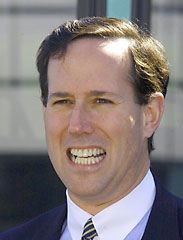I recently wrote my Christian Fundamentalist Homophobia series to point out how I and other fundamentalist children were taught to feel contempt and disgust for people who didn’t live up to our artificial standards. We were taught to separate people from their self-expression, as though they were somehow trapped in an impregnable cocoon and all we could actually see was the demon that controlled them. In other words, we hated everything about them but loved a vague idea in our minds of the “saved” person the sinner could become – you know, someone who didn’t actually exist. Someone we made up.
My conclusion to the series was this:
Unconditional love does not mean loving someone while disapproving of their actions. It means forsaking the right to disapprove. You cannot love who I am and hate what I do. What I do shows you who I am. If you choose to love a figment of your imagination, some idea of who I might become, then you love only your own mind, and what you hate is me.
Melissa at Permission to Live and Katy-Anne Wilson at American N Aussie have both written posts that address this, too. Each writes from a different perspective: one religious, one social. Excerpts below:
“Love the Sinner, Hate the Sin” by Katy-Anne
I also think that “love the sinner but hate the sin” is hypocrisy because often, we hate somebody else’s sin and yet we fail to hate our own. We would be better served hating our own sin and working on correcting our own sins than worrying about the sins of someone else. It is easy for me to judge someone for struggling with sins that I don’t struggle with, but I’m often far more sympathetic of those that struggle with the same sins I do than those that struggle with other sins, and that’s wrong.
Hate the Sin, Love the Sinner? by Melissa
I grew up with people who claimed they didn’t hate anyone (remember? They “love” sinners.) I even claimed to “love sinners while hating their sin” myself once upon a time. I understood tolerance to mean extreme distaste and dislike and disapproval, coupled with an ability to refrain oneself from violence towards the person you felt that way about. I felt that acceptance better expressed an ability to disagree, but be OK with that person living their own life. In reality, The definition for the term Tolerance is: “A fair, objective, and permissive attitude toward opinions and practices that differ from one’s own.”
This term encompasses perfectly what I am asking from people who do not agree with the reality of LGBTQ persons, and/or the exact ways they may choose to live their lives. Being willing to hear another person, seek to be fair and objective and impartial, is exactly what I meant to say by using the term “Acceptance”…. Many people who claim to be tolerant think that minorities should feel grateful that they are not being hung in the town square. They make no bones about the fact that they “Hate the sin.” And the “love the sinner” begins to sound more like “don’t kill the sinner”. This is not tolerance.


